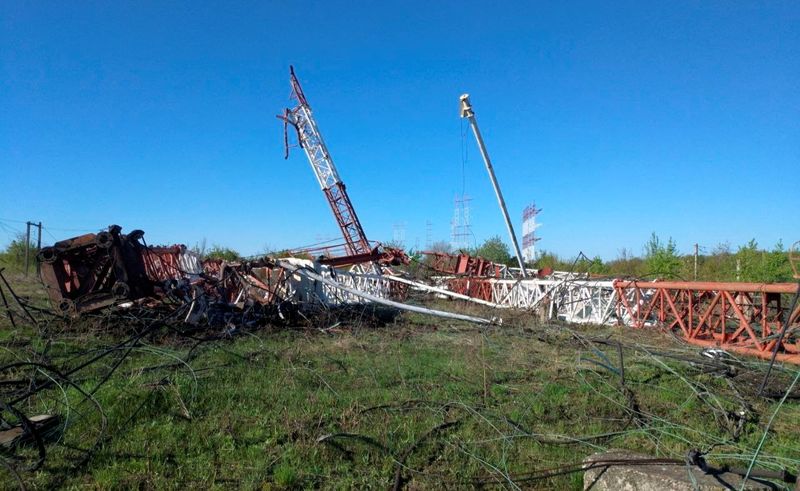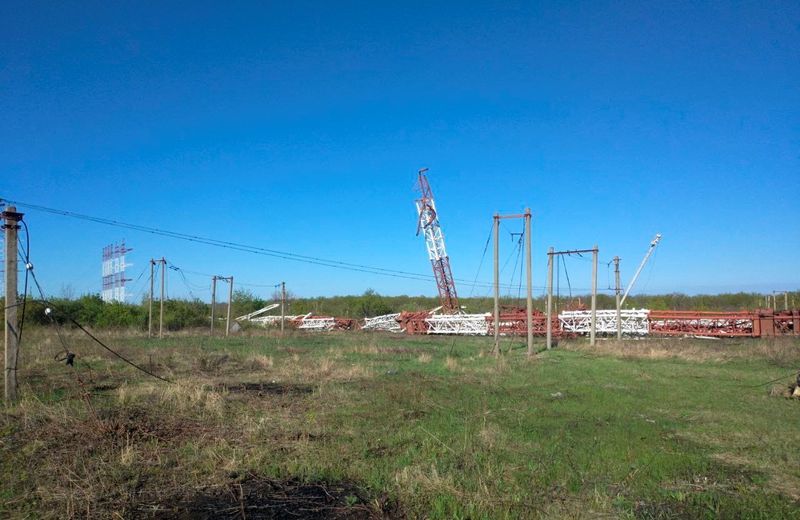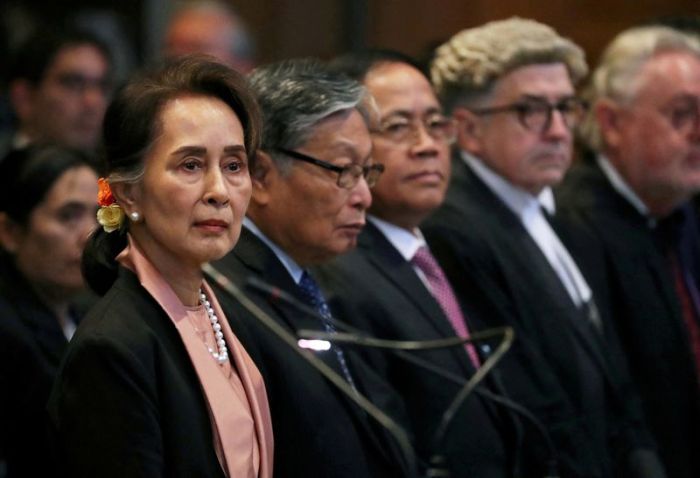CHISINAU (Reuters) -Ukraine accused Moscow on Tuesday of trying to drag Moldova’s breakaway region of Transdniestria into its war on Kyiv after authorities in the Moscow-backed region said they had been targeted by a series of attacks.
Authorities in Transdniestria, an unrecognised sliver of land bordering southwestern Ukraine, said that explosions had damaged two radio masts that broadcast in Russian and that one of its military units had been attacked.
It provided few details, but blamed Ukraine, raising its “terrorist” threat level to red and introducing checkpoints around its towns.
“The traces of these attacks lead to Ukraine”, Russian news agency TASS quoted Vadim Krasnoselsky, the self-styled president of Transdniestria, as saying. “I assume that those who organised this attack have the purpose of dragging Transdniestria into the conflict.”
Reuters could not independently verify the accounts of the attacks.
The Kremlin, which has troops and peacekeepers in the region, said it was seriously concerned.
Ukraine fears the region could be used as a launch pad for new attacks. President Volodymyr Zelenskiy blamed Moscow, saying Russia was showing Moldova what to expect if it continued to support Kyiv.
“We have seen that another step is being planned by the Russian Federation … it is clear why, really, to destabilize the situation in the region,” he told a news conference with the visiting head of the International Atomic Energy Agency.
Ukraine “condemns the desperate attempts to draw the Transdniestrian region of Moldova into the full-scale war against Ukraine,” the foreign ministry said earlier.
It noted that the incidents followed recent comments from Russia about extending its reach in the region.
Moldova, which is sensitive to any sign of worsening security in the enclave, called an emergency security council meeting after the reports.
“From the information we have at this moment, these escalation attempts stem from factions within the Transdniestrian region that are pro-war forces and interested in destabilising the situation in the region,” President Maia Sandu told a news conference.
She said the Moldovan security council had recommended stepping up the combat readiness of forces, increasing the number of patrols and checks near its border with Transdniestria and monitoring critical infrastructure more closely.
Russia has had troops permanently based in Transdniestria since the collapse of the Soviet Union.
KREMLIN CONCERN
Last week, a senior Russian military official said the second phase of what Russia calls its “special military operation” in Ukraine included a plan to take full control of southern Ukraine and improve its access to Transdniestria.
Kremlin spokesman Dmitry Peskov told reporters that Moscow was following events in Transdniestria closely.
Later on Tuesday, the Russian foreign ministry said that Moscow wanted to avoid a scenario in which it had to intervene in Transdniestria, the RIA news agency reported.
Moldova’s Sandu described the situation as “complex and tense,” but said she had no plans to hold direct talks about it with Russian President Vladimir Putin.
Washington was looking at the cause of recent violence in Transdniestria, U.S. Defense Secretary Lloyd Austin said at Ramstein Air Base in Germany.
“Not really sure what that’s all about, but it’s something that we will stay focused on,” Austin said.
U.N. Secretary-General Antonio Guterres urged “all concerned to refrain from any statements or actions that could escalate tensions” in the region, U.N. spokesperson Farhan Haq said.
(Additional reporting by Luiza Ilie, Michelle Nichols, Phil Stewart and David Ljunggren; Writing by Tom Balmforth and Alessandra Prentice, Editing by Timothy Heritage, Angus MacSwan and Tomasz Janowski)



























